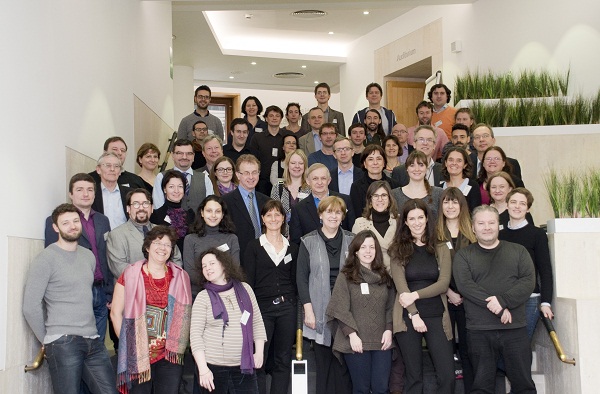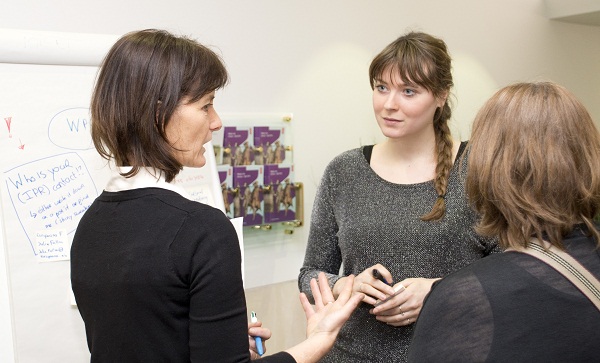Europeana Sounds’ overture
Europeana Sounds aims to significantly increase audio and audio-related content accessible through Europeana.
The consortium of Europeana Sounds* – a brand new Europeana project came together for the first time in London on 17-18 February. Hosted by the coordinator of this three-year project, the British Library, this meeting was a good first opportunity to finally put faces to the names.

Photo credit: Elizabeth Hunter, British LibraryCC-BY-SA
Europeana Sounds aims to significantly increase audio and audio-related content accessible through Europeana, mainly classical, traditional and folk music, natural sounds and oral memory. Through crowdsourcing, it will also provide semantic enrichment of existing metadata. The project should make it easier to access unavailable works and develop the possibilities of re-use by the creative industries.
Over these two days, many discussions took place among the enthusiastic delegates of the 24 partner organisations coming from 12 different countries. This provided a good start to the project. The presentation of the aggregation work package proved to be of particular interest specifically for each content provider with discussions on how to select the documents to reach a critical mass; how to adapt the EDM format; what ontology system to adopt; and with discussions also on legal aspects and the issue of licensing material.

Photo credit: Elizabeth Hunter, British LibraryCC-BY-SA
Two concert sessions also allowed all the participants to discover and enjoy a selection of sound and video recordings before returning home to carry on the work.
Many thanks to the British Library for their flawless organisation and warm welcome!
Follow the project on Twitter: https://twitter.com/eu_sounds
*Europeana Sounds is funded by the European Union under its ICT Policy Support Programme as part of the Competitiveness and Innovation Framework Programme.
Les premiers pas d’Europeana Sounds
Le consortium d’un tout nouveau projet européen, Europeana Sounds*, s’est réuni pour la première fois à Londres les 17 et 18 février dernier. Organisée par la British Library, coordinateur de ce projet de trois ans, cette rencontre a constitué une première opportunité pour mettre enfin des visages sur des noms désormais familiers.

Photo credit: Elizabeth Hunter, British LibraryCC-BY-SA
Europeana Sounds vise à accroître considérablement le contenu audio accessible via Europeana, principalement de la musique classique, traditionnelle et folklorique, des enregistrements faits en milieu naturel et des archives de la parole. Ce projet permettra un enrichissement sémantique des métadonnées grâce au crowdsourcing; et devrait également faciliter l'accès à des œuvres actuellement en accès limité et développer les possibilités de réutilisation par les industries créatives.
Au cours de ces deux jours, les nombreuses discussions entre les délégués enthousiastes des 24 membres du consortium provenant de 12 pays différents a permis au projet de débuter sur les chapeaux de roues. La présentation portant sur l’agrégation a suscité un intérêt particulier chez chaque fournisseur de contenu: comment sélectionner les documents pour atteindre une masse critique? Comment adapter le format EDM? Quel système d’ontologies adopter? Sans oublier, bien sûr, les aspects juridiques.

Photo credit: Elizabeth Hunter, British LibraryCC-BY-SA
Deux sessions acoustiques ont permis aux participants de découvrir et d’apprécier une sélection d’enregistrements audio et vidéo, avant de regagner leurs institutions pour poursuivre le travail.
Tous nos remerciements à la British Library pour son organisation sans faille et son accueil chaleureux!
Suivez le projet sur Twitter : https://twitter.com/eu_sounds
